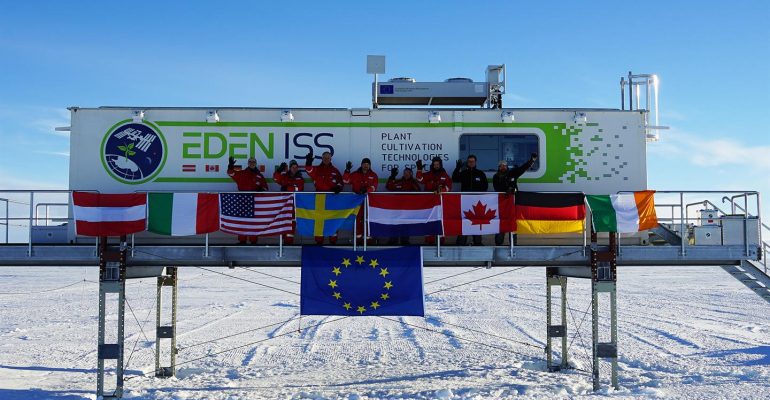At first sight, farming in a used shipping container in a megacity parking lot might not look like a sustainable source of food. However many believe that there is a huge potential in this field of vertical farming and there are many startups introducing new designs for container farms, most of which are located in the U.S.
Professor Joel Cuello, in a recent lecture for the AVF press team, talked about his prototype for prefabricated container farms at the University of Arizona; he expressed his optimism about the future of this design in the vertical farming industry. The rise in number of companies dedicated to producing food in container farms, or solely refurbishing used shipping containers for the purpose of farming, suggests that this is a paradigm shift for urban agriculture and vertical farms. Local Roots, Square Roots, Modular Farms, Growtainer and Freight Farms are just some of the companies focused on container farms.
There seems to be a divergence between those who see the future of vertical farming in high-rise buildings, those who advocate for the development of plant factories, and those who are more invested in the promotion of container farms. The supporters of container farms endorse this design by touting the benefits of having a farm that is easy to transport, allowing it to be established anywhere. On the other hand, critics point out the difficulties in achieving economic success in urban agriculture through container farms due to lower yields in comparison to high-rise building vertical farms and plant factories.
In recent years there have been many scientific projects studying the possibility of growing food in space. The EDEN ISS project simulates vertical farming in space using a modified shipping container in Antarctica. The success of projects like the EDEN ISS suggests that using container farms on earth can also be successful. Producing local food every day of the year, regardless of environmental conditions, will be enabled by mass production of container farms. Before that happens, there should be numerous studies on economic aspects and market reviews to assess the efficiency of container farms in different communities. Though there is a difference of opinion between experts about which path the vertical farming industry should take in the future, there is shared optimism about the role of container farms in promoting the vertical farming concept. Furthermore, there is no doubting that container farms can help localize food production and get young farmers around the world excited about the future of agriculture.
It seems to me that there can be more than one way to overcome obstacles in the integration of urban agriculture and global food systems. Diverse designs of vertical farms can help to find the best solution for different cities around the world and create enough data to scientifically back the capability of vertical farming in feeding the world in coming decades.

